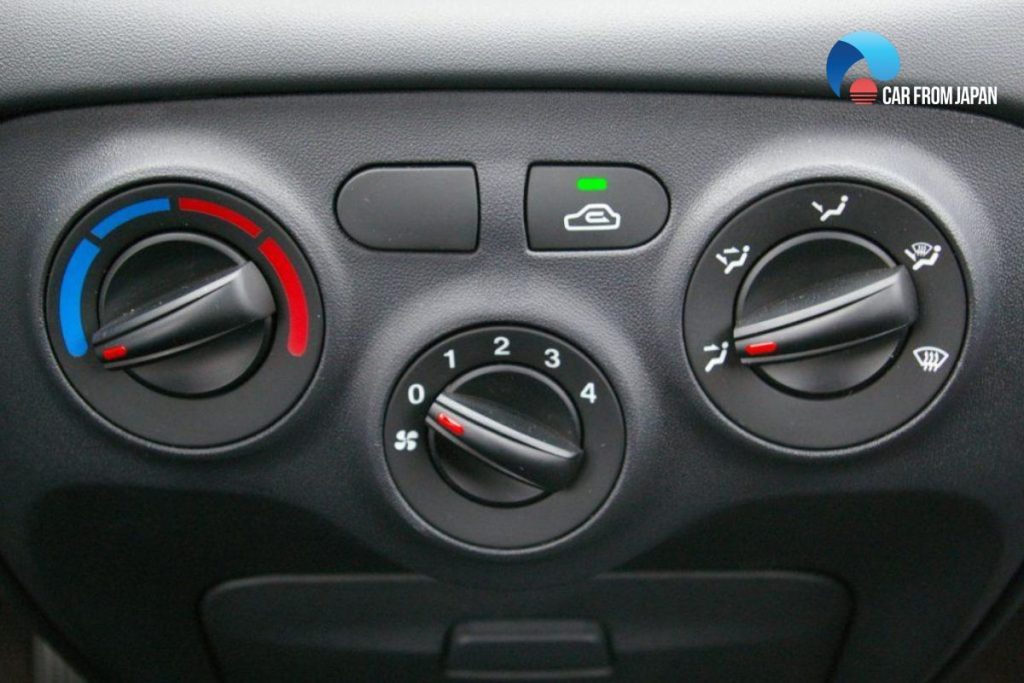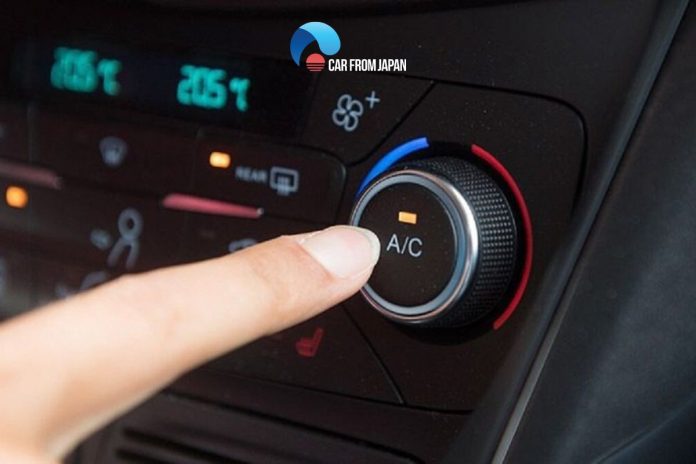When anyone learns driving, they think that this is it! They have become the masters of driving, but one forgets that there is a lot more to cars and driving that needs to be known.
One of such things you need to be aware of includes knowing whether to turn off AC before turning off car or not? Yes, these minute details too, make a difference!
Contents
- Should You Turn Off AC Before Turning Off Car?
- FAQs on Turning Off Car AC
- Can turning off the AC before the car save fuel?
- Does turning off the AC before shutting down the car extend the AC’s lifespan?
- Is it safe to leave the AC running while the engine is off?
- Can turning off the AC before shutting down the car prevent a hot interior on a future start?
- Can turning off the AC abruptly harm the AC system?
- Conclusion
Should You Turn Off AC Before Turning Off Car?
The car’s AC is an electrical device that blows the cool air when in need. The engine drives the device, i.e., if the engine is off, the AC wouldn’t work either.
There is confusion whether you should turn off AC before turning off car or not. Let’s drive away the confusions right away!
The Popular Belief
The essential component of an AC system is a compressor. It is the compressor that connects the AC to the engine through a cassette wire.
The connection goes live only when an engine starts, that is why an AC only works when the engine is running.
The car drivers believe that the engine would take on the extra load if the AC is in “ON” phase when the car is in ignition phase. This belief is based on the fact that AC consumes much power and fuel when working.
To your surprise, it does not matter whether turning off ac before turning off car or vice versa. The engine of the car goes unaffected, and choosing to turn off AC or turning off the engine altogether is ultimately your choice.

See More: Must-Know Tips for Fixing AC Leak in Your Car
What If The Battery Is Old?
It does not matter whether you turn off the engine without depressing the AC button, but that is only when the car battery is new. In case, the car’s battery is old; the AC is likely to put a load on the engine.
As in, when you start the engine with the AC “ON,” the load on the starter motor would consequentially increase.
This may result in the engine not starting at all, or it starting with a certain overload. One should not ignore the power usage from the battery when the engine gets started by the driver.
To be on the safer side, you may switch off the AC before you turn off the engine. You could also go through maintenance tips if you wish to learn the art of vacuuming the car’s AC system.
The Advantage Of The New Technology
Technology has been a boon to the automotive industry! In older vehicles, you still had to think twice before turning off the engine without turning off the AC.
This is because it would add a certain load on the engine. With advancements, the ECU system automatically cuts off the connections to all electrical devices.
This happens to ensure that the fuel and battery can be effectively utilized for starting the engine.
Whether you turn off the air conditioning before starting the car or before turning off the car, it does not make a difference.
As everything is automatic, you do not have to worry about a thing. Car makers are continuously innovating and making things easy for you, even when you forget to switch off a thing such as car lights.

FAQs on Turning Off Car AC
Can turning off the AC before the car save fuel?
Turning off the AC before turning off the car can save a minimal amount of fuel.
The AC compressor consumes energy, and by turning it off before shutting down the engine, you can marginally improve fuel efficiency.
Does turning off the AC before shutting down the car extend the AC’s lifespan?
Yes, turning off the AC before shutting down the car can contribute to extending the AC’s lifespan.
It reduces the strain on the AC components and may help prevent premature wear and tear.
Is it safe to leave the AC running while the engine is off?
Leaving the AC running while the engine is off can be safe for a brief period, but it may drain the battery.
Some modern vehicles have a feature that allows the AC to run briefly after the engine is turned off, but it’s generally advisable not to do this for an extended period to avoid battery depletion.
Can turning off the AC before shutting down the car prevent a hot interior on a future start?
Yes, turning off the AC before shutting down the car can help prevent a hot interior on a future start.
It allows the system to cool down gradually, which can help maintain a more comfortable cabin temperature when you restart the car.
Can turning off the AC abruptly harm the AC system?
Turning off the AC abruptly is unlikely to harm the AC system in modern vehicles.
However, it’s considered a good practice to turn it off a minute or so before shutting down the engine to allow the system to equalize and minimize wear.
Check out this video from Scotty Kilmer for more information on how to make your cooling system and AC last as long as possible!
Conclusion
Now that you know that there are not many problems associated when you turn off AC before turning off car, you can take a sigh of relief!
Always remember, even the smallest of your actions can harm your car! So, if your battery and car model is old enough, turning off AC before coming to a halt is not that a bad idea.




Putting AC in no 1 or putting it on no 4 . which one consumes more fuel?
It’s a old habbit i picked up from my dad … so i still turn off the AC before turning the car off … even though we know modern cars are fine whether its off or on when you turn the engine off … old habbits die hard i guess lol
Thanks for the rich ideas that keep us going and avoiding certain costs borne out of ignorance since we have become our own mechanics